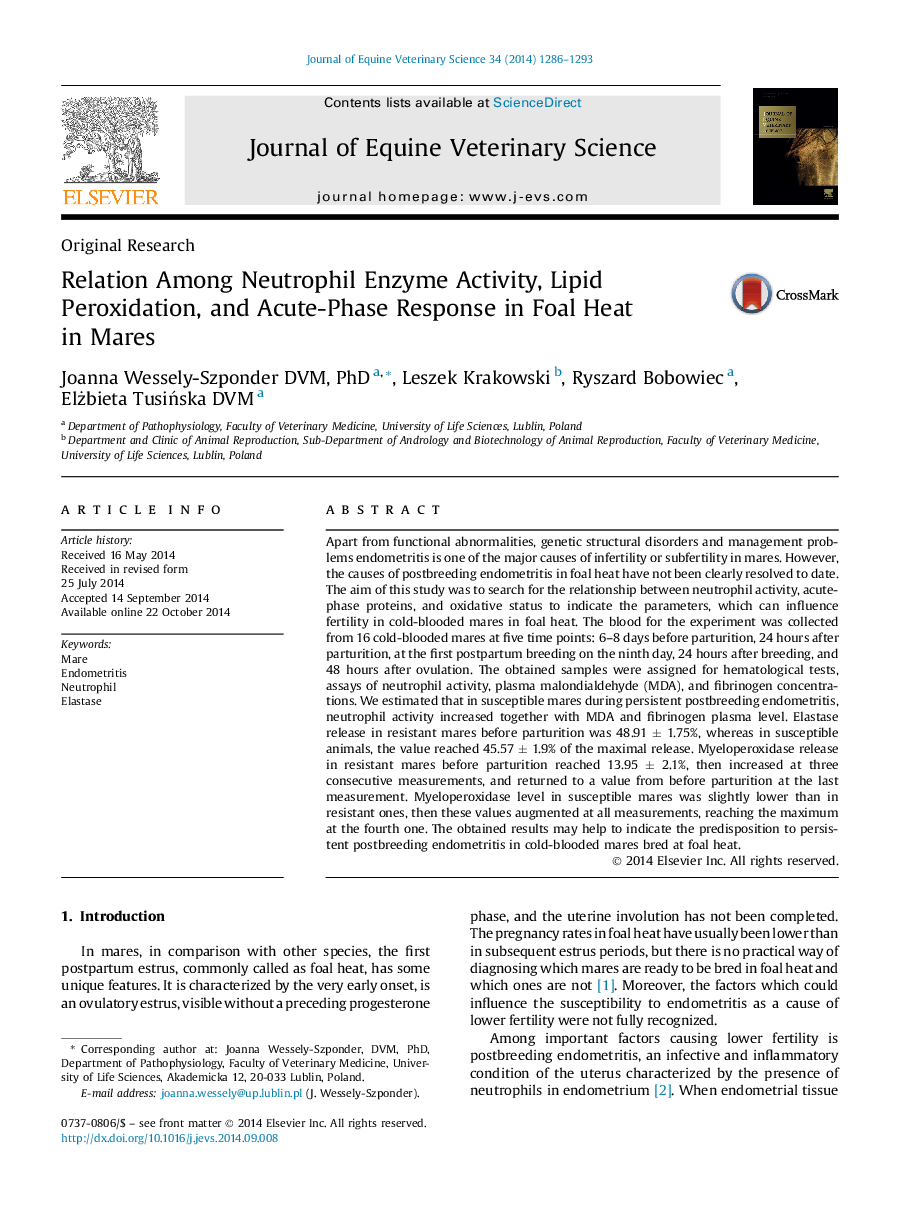| Article ID | Journal | Published Year | Pages | File Type |
|---|---|---|---|---|
| 8483627 | Journal of Equine Veterinary Science | 2014 | 8 Pages |
Abstract
Apart from functional abnormalities, genetic structural disorders and management problems endometritis is one of the major causes of infertility or subfertility in mares. However, the causes of postbreeding endometritis in foal heat have not been clearly resolved to date. The aim of this study was to search for the relationship between neutrophil activity, acute-phase proteins, and oxidative status to indicate the parameters, which can influence fertility in cold-blooded mares in foal heat. The blood for the experiment was collected from 16 cold-blooded mares at five time points: 6-8 days before parturition, 24 hours after parturition, at the first postpartum breeding on the ninth day, 24 hours after breeding, and 48 hours after ovulation. The obtained samples were assigned for hematological tests, assays of neutrophil activity, plasma malondialdehyde (MDA), and fibrinogen concentrations. We estimated that in susceptible mares during persistent postbreeding endometritis, neutrophil activity increased together with MDA and fibrinogen plasma level. Elastase release in resistant mares before parturition was 48.91 ± 1.75%, whereas in susceptible animals, the value reached 45.57 ± 1.9% of the maximal release. Myeloperoxidase release in resistant mares before parturition reached 13.95 ± 2.1%, then increased at three consecutive measurements, and returned to a value from before parturition at the last measurement. Myeloperoxidase level in susceptible mares was slightly lower than in resistant ones, then these values augmented at all measurements, reaching the maximum at the fourth one. The obtained results may help to indicate the predisposition to persistent postbreeding endometritis in cold-blooded mares bred at foal heat.
Keywords
Related Topics
Life Sciences
Agricultural and Biological Sciences
Animal Science and Zoology
Authors
Joanna DVM, PhD, Leszek Krakowski, Ryszard Bobowiec, Elżbieta DVM,
